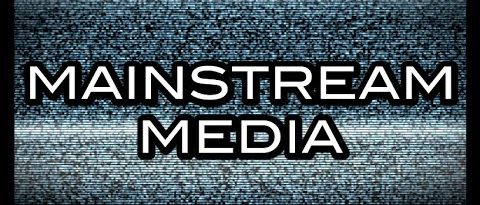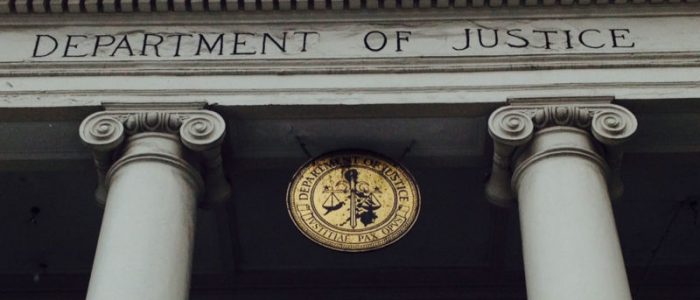This post was published at George Webb

US Policy Paradox: How To Lose Friends And Influence Nothing
 When Paul Robeson belted out the lyric ‘I’m tired of living, and scared of dying,’ he stumbled on to a paradox of emotional dissonance that could easily define the geo-strategic cognitive dissonance that the US exhibits when dealing with its fellow superpowers Russia and China.
When Paul Robeson belted out the lyric ‘I’m tired of living, and scared of dying,’ he stumbled on to a paradox of emotional dissonance that could easily define the geo-strategic cognitive dissonance that the US exhibits when dealing with its fellow superpowers Russia and China.
***
Time and again the United States has shown that it does not want war with either of those countries, and these feelings are of course mutual. However, the US has a strange penchant for conducting provocative measures that inexorably harm relations with both Russia and China in mind-blowingly close proximity in time to moves suggesting rapprochement or, at minimum, de-escalation of tensions.
The most recent example is the Pentagon signing an agreement to open lines of direct communication with the commanders of the People’s Liberation Army to avoid ‘miscalculations’ in areas ranging from the Korean Peninsula to the South and East China Seas. In a rational environment, this would be seen as a US climb-down over actions China finds unacceptable in Korea and in its maritime waters. But in the current environment, while the US has signed an agreement that would ideally reduce tensions between the Chinese and US armed forces, the US president has also authorized his government to open an investigation into Chinese trade practices. While the proximate issue is US intellectual-property rights in China, the phrase ‘anti-Chinese sanctions’ is on the tip of everyone’s lips.
This post was published at Zero Hedge on Aug 21, 2017.
Beware the “The Cultural Civil War” Narrative: You’re Being Played
 There is always common ground for those who dare to seek it.
There is always common ground for those who dare to seek it.
That failed narrative has now been replaced with a new mass hysteria: “a new cultural Civil War is inevitable.” In this narrative, America has succumbed to us-versus-them divisions divided by all-or-nothing ideological bright lines. Remember the “Russians hacked our election!” hysteria–or have you already forgotten? That entire narrative collapsed under a deluge of factual evidence that the Democratic National Committee (DNC) data release was an insider job, and a compelling lack of evidence of any other Russian hacking. Snap out of it, America: you’re being played, just as you were played by the absurd “Russia hacked the election” mania. The core strategy here is the destruction of any common ground: once the delusion that there is no common ground left has been cemented by relentless mainstream and social media hysteria/ propaganda, the populace fragments into echo-chamber fiefdoms of ideological conformity that are easily manipulated by the political-financial power structure.
This post was published at Charles Hugh Smith on MONDAY, AUGUST 21, 2017.



Erdogan Tells Turks in Germany to Vote Against Merkel
 While the Democrats want to make a huge issue out of Russia hacking their files and releasing evidence that they were truly corrupt and how Clinton was just a liar blaming Russia rather than themselves, interference in the elections of other countries is par for the course. I have reported how Obama has interfered in Canada, Britain, and France. This is standard operational procedure. Now Turkish President Tayyip Erdogan publicly told all Turks living in Germany to vote against Chancellor Angela Merkel’s Christian Democrats on September 24th.
While the Democrats want to make a huge issue out of Russia hacking their files and releasing evidence that they were truly corrupt and how Clinton was just a liar blaming Russia rather than themselves, interference in the elections of other countries is par for the course. I have reported how Obama has interfered in Canada, Britain, and France. This is standard operational procedure. Now Turkish President Tayyip Erdogan publicly told all Turks living in Germany to vote against Chancellor Angela Merkel’s Christian Democrats on September 24th.
For Erdogan to publicly try to influence the German elections as Obama did in Britain tell them to get to the ‘back of queue’ if they voted for BREXIT, demonstrates the lack of unity between the NATO allies and major trade partners.
This post was published at Armstrong Economics on Aug 21, 2017.
The Levellers: The First Libertarians
 The first-ever libertarians were the Levellers, an English political movement active in the seventeenth century. The Levellers contributed to the elaboration of the methodological and political paradigm of individualism, and they are at the origin of the radical strand of classical liberalism. While the Levellers are often characterized as a quasi-socialist movement, closer examination shows that the Levellers had much more in common with advocates for free markets than with socialists.
The first-ever libertarians were the Levellers, an English political movement active in the seventeenth century. The Levellers contributed to the elaboration of the methodological and political paradigm of individualism, and they are at the origin of the radical strand of classical liberalism. While the Levellers are often characterized as a quasi-socialist movement, closer examination shows that the Levellers had much more in common with advocates for free markets than with socialists.
This interpretation of the Levellers is supported, among others, by Murray N. Rothbard who considers them as ‘the world’s first self-consciously libertarian movement.’ Rothbard notes that ‘[i]n a series of notable debates within the Republican Army – notably between the Cromwellians and the Levellers – the Levellers led by John Lilburne, Richard Overton and William Walwyn, worked out a remarkably consistent libertarian doctrine, upholding the rights of self-ownership, private property, religious freedom for the individual, and minimal government interference in society. The rights of each individual to his person and property, furthermore, were natural, that is, they were derived from the nature of man.’
One of the most important of the Levellers’ contributions to the theoretical foundation of the libertarian doctrine was, according to Rothbard, that they, ‘transformed the rather vague and holistic notions of natural law into the clear cut, firmly individualistic concepts of natural rights of every individual human being,’ including fundamental tenets of libertarianism. This included the right to self-ownership, methodological individualism, individual natural rights theory, sound property rights, and economic freedom.
This post was published at Ludwig von Mises Institute on August 20, 2017.
Angela Merkel is being Called a Traitor for the Refugee Crisis
 The EU has abandoned Italy while simultaneously demanding that the refugees must be taken care of. Nearly 100,000 refugees have arrived in Italy since the start of this year alone. The Italian government cannot cope with the refugee crisis and Brussels said they cannot exempt them from the restraint of busgets. That means that money for Italians must be diverted to the refugees and they keep coming.
The EU has abandoned Italy while simultaneously demanding that the refugees must be taken care of. Nearly 100,000 refugees have arrived in Italy since the start of this year alone. The Italian government cannot cope with the refugee crisis and Brussels said they cannot exempt them from the restraint of busgets. That means that money for Italians must be diverted to the refugees and they keep coming.
Italy is being pushed to the limit and cannot possible cope with this burden alone while Brussels refuses to compensate them. Let any country refuse to accept refugees and Brussels is quick to condemn them, but wont pay for them itself.
This post was published at Armstrong Economics on Aug 21, 2017.








 Follow on Twitter
Follow on Twitter
Recent Comments